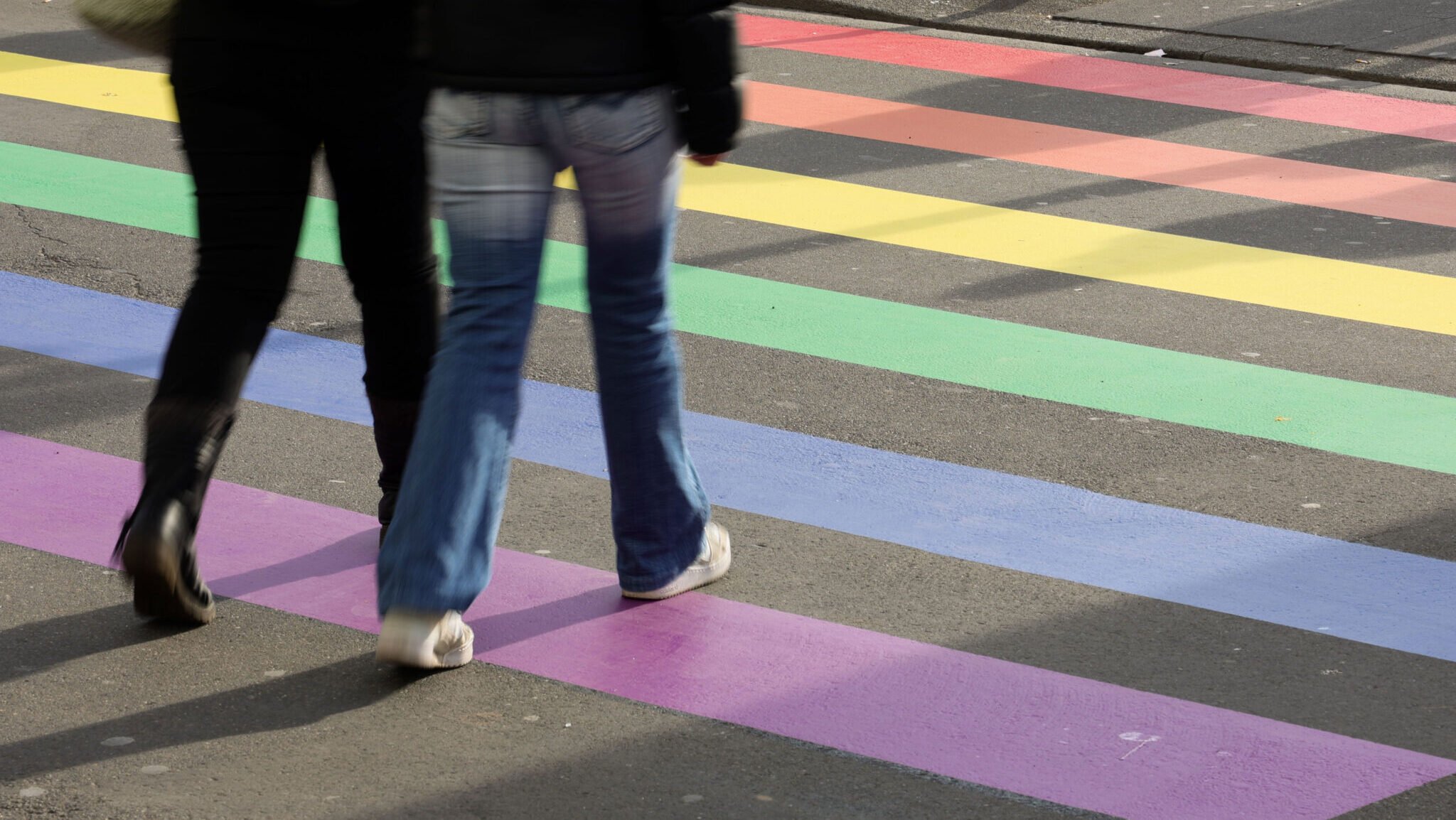Rainbow Crosswalks Under Threat in Florida and Potentially More States Across The U.S.
Rainbow-painted crosswalks, long celebrated as vibrant symbols of LGBTQ pride and inclusivity, are now at risk of being erased from streets across Florida, and possibly beyond, under new directives from state and federal officials.This latest controversy comes after guidance was issued by both the administration of Florida Gov. Ron DeSantis and the federal government under President Donald Trump, calling for the removal of asphalt art, including rainbow crosswalks. The dual directives are framed as a traffic safety measure, but LGBTQ advocates and local officials argue the move is a thinly veiled political attack on queer visibility.The federal guidance, sent to states on July 1 by Transportation Secretary Sean P. Duffy, gave local transportation departments 60 days to examine all decorated crosswalks and submit a list of compliance concerns. Duffys Safe Roads initiative claims that non-standard colors used in crosswalks, such as rainbow stripes, create distractions and should be removed.Roads are for safety, not political messages or artwork, Duffy said in a statement.But the data doesnt support the claim that rainbow crosswalks pose a safety risk.A 2022 study conducted by Bloomberg Philanthropies, which funds street art projects nationwide, examined crash data at 17 intersections across the country where crosswalks had been artistically painted. With a minimum of two years of crash statistics at each site, the study found that crashes decreased by more than 50 percent after the installations were added. A total of 83 fewer crashes occurred at those intersections after the crosswalks were painted.My thoughts are that this is political in nature and not directly related to traffic safety, said Samuel Kaufman, a city commissioner in Key West.In Key West, rainbow-painted crosswalks at Duval and Petronia Streets have become iconic symbols of LGBTQ pride, and major tourist attractions. The intersection, painted in 2015, quickly became one of the most photographed spots on the island.City officials have checked all traffic incidents over many years, and there has not been a single reported traffic-related incident related to the crosswalks, Kaufman added.Cities across Florida have embraced street art as part of their public and cultural identity. In Key West, the city commission even passed a proclamation declaring the rainbow-painted areas a treasured cultural district, an effort to shield the designs from being paved over.Despite those efforts, some cities have already begun compliance efforts. In Boynton Beach, officials paved over rainbow crosswalks shortly after receiving the state memo. Gainesville followed suit on August 7, with city commissioners voting to remove three rainbow-painted crossings. Commissioners cited the potential loss of transportation funding from the state if they failed to comply.The city cannot afford to risk having essential infrastructure projects defunded, a spokesperson for the city of Gainesville said. We had no choice.In Orlando, however, rainbow crosswalks still remain and are deeply woven into the citys identity. The colorful street art near Lake Eola Park is surrounded by other murals, rainbow-painted asphalt, and even artistic renderings of swans, a tribute to the real swans that grace the parks lake.One of Orlandos rainbow-painted intersections serves as a permanent memorial to the 49 lives lost in the 2016 Pulse nightclub shooting, a tragedy that deeply impacted the LGBTQ community both locally and nationally. The city has announced plans to build a new Pulse memorial nearby in 2026, with intentions to incorporate the crosswalk into the design.For many Floridians, the push to remove rainbow crosswalks is being seen not as a matter of public safety, but of political overreach.Targeting rainbows is about erasing the LGBTQ community, said state Sen. Carlos Guillermo Smith, a Democrat from Orlando. These symbols, like the swans, that were carefully planned and enhance the community and make the streets safer, thats just absurd.The removal of LGBTQ-themed crosswalks has ignited outrage on social media and in advocacy circles, with critics arguing that the effort represents a broader campaign to silence queer representation in public spaces.While rainbow-painted crosswalks have become popular across North America and Europe, Florida is one of the first U.S. states to move toward banning them entirely. Advocates warn that if the federal directive remains in place, other states may follow suit, effectively rolling back years of progress in LGBTQ visibility.For now, many cities are fighting to keep the rainbows on their streets, if not with paint, then with persistence.Source



